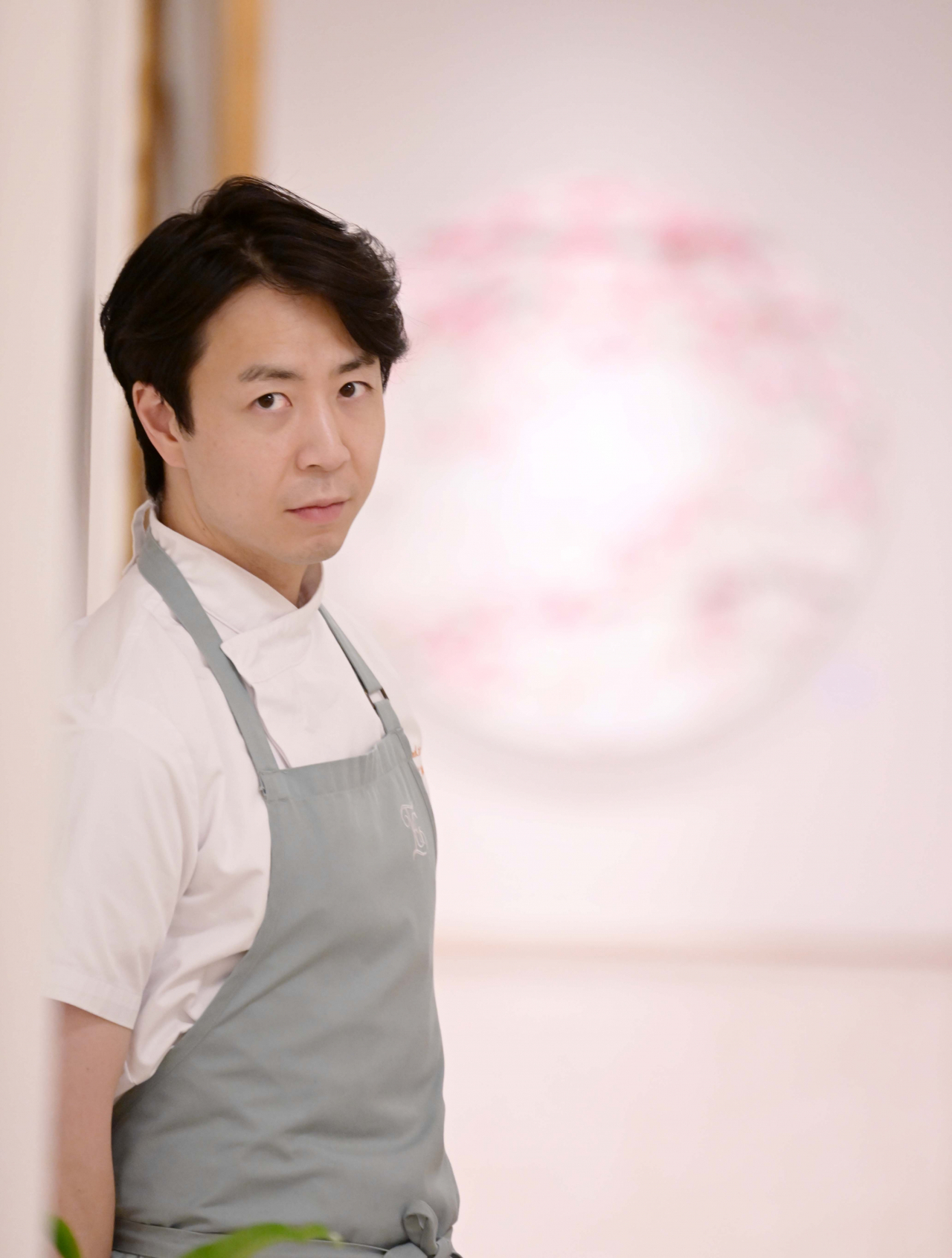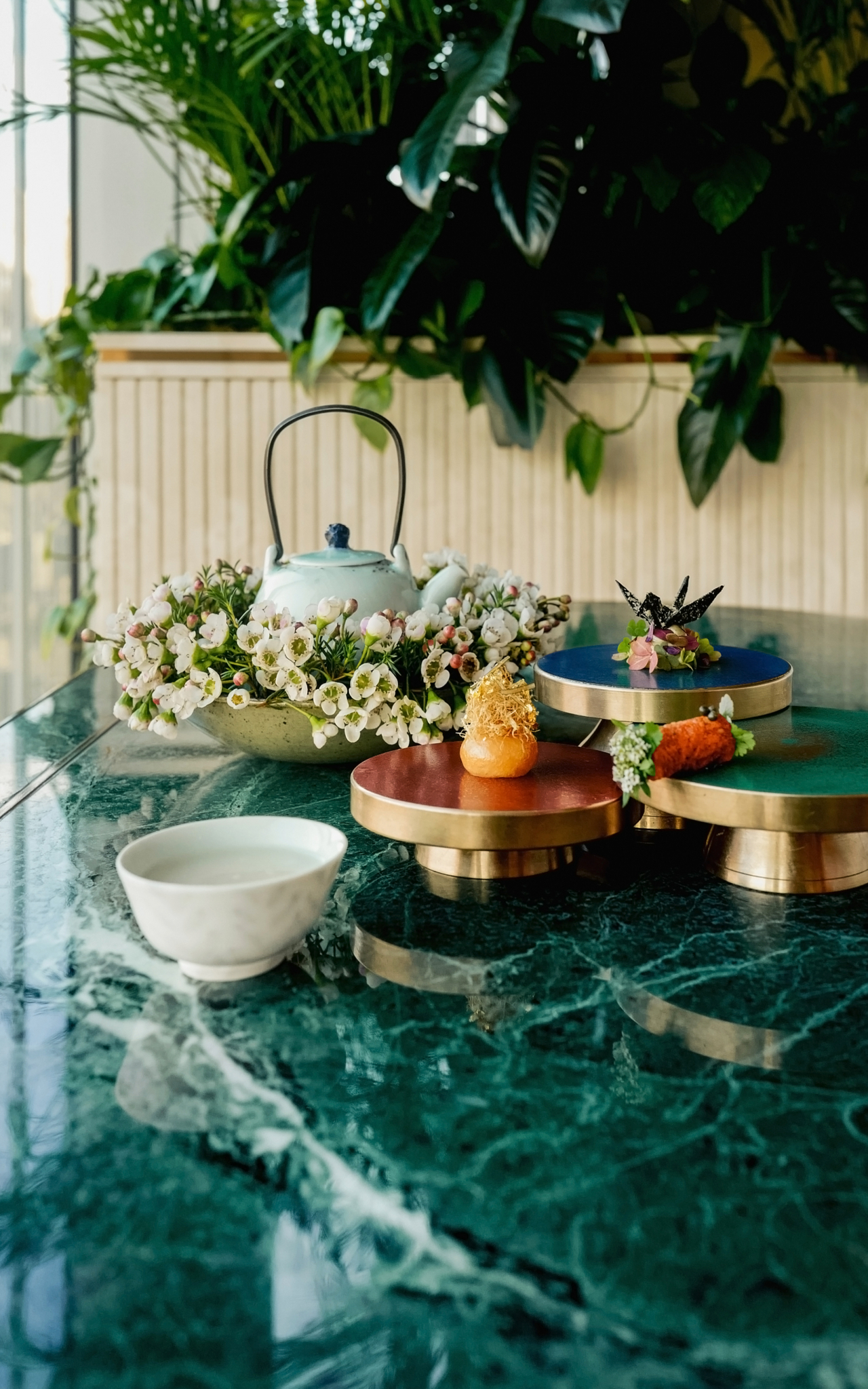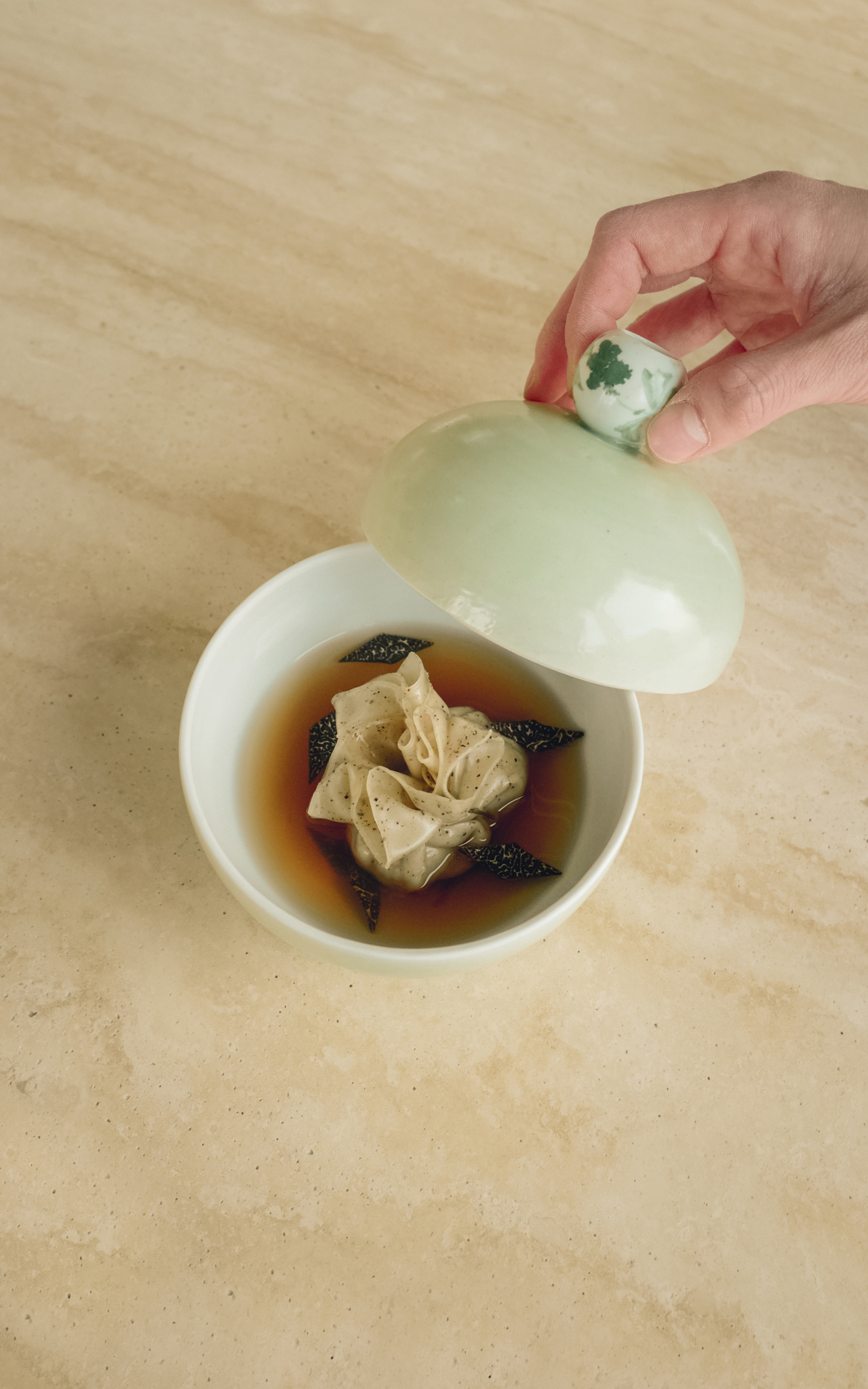 |
Eatanic Garden (Josun Palace) |
Stepping into the lavish interior of Eatanic Garden, a contemporary Korean fine dining restaurant located on the 36th floor of Josun Palace Hotel in the middle of Gangnam, Seoul, one is hit by the exotic mood and energy of the place.
Traditionally, hotels have been at the center of gourmet experiences. Many of the restaurants listed in the Michelin guide around the world are located in hotels. That is, hotels have, for many, come to symbolize a place that guarantees a once-in-a-lifetime gourmet experience.
Such trend is found in the local fine dining scene as well. Josun Hotels & Resorts, a hotel business run by the Shinsegae Group, operates L’Amant Secret, a one Michelin-starred contemporary fine dining restaurant, at L’Escape Hotel, as well as contemporary Korean fine dining restaurant Eatanic Garden at Josun Palace. Both restaurants are headed by Son Jong-won.
 |
Eatanic Garden head chef Son Jong-won (Lee Sang-sub/The Korea Herald) |
Son, who leads a team of about 40 kitchen staff, service managers and sommeliers, marks his first anniversary at Eatanic Garden this month. After a year of trial and error, he said the picture of what he wants to offer to customers is getting clearer.
“It still feels surreal for me to be able to lead the team at Eatanic Garden as head chef,” Son told The Korea Herald during an interview on Jan. 25.
“One thing is becoming clearer for me. I’m constantly seeking to challenge myself to express the newness and freshness of modern Korean fine dining by reinterpreting local ingredients with cooking methods from around the world, instead of cooking in a traditional way,” he said, adding that’s why Eatanic Garden is dubbed an “innovative cuisine restaurant.”
The restaurant’s name is a combination of the words “eat” and “botanic,” and aims to serve as a place where South Korean food, culture, history and recipes are developed.
 |
Fresh ginseng (Josun Palace) |
 |
Plum Tree Blossom (Josun Palace) |
Son said innovative cuisine means making something that has never existed before, a lot different from just giving a contemporary tweak to an existing dish.
One example is Son’s use of abalone in a beef dish.
Instead of presenting beef in the well-known and traditional tteokgalbi or galbijjim, he has placed layers of thinly sliced abalone on sliced beef so it looks like marbled meat. By charcoal smoking it, customers can feel another level of juiciness with a light flavor.
According to Son, Korean food is hard to define simply.
“When someone thinks of Korean food, many see it as very traditional. It’s good to know the old, traditional value of our food, but I’m sure that someone needs to tackle the old method and add new cooking style or try different ingredients to better interpret it,” he said.
That is why at Eatanic Garden, Son wants to give a wholesome experience which can satisfy both the eyes, the palate and ears while dining.
 |
Jujeonburi (Josun Palace) |
“I carefully select the playlist (to be played during service time). I’m also responsible for making postcards which include the explanation of the menu, ingredients and the reason behind presenting that particular dish,” he said.
Although he has not taken any time off since he was put in charge of Eatanic Garden a year ago, he still manages to spend a significant amount of time studying Korean food.
“I’m still looking for ways to take one-day classes or short programs to study Korean royal cuisine. I was stressed about the fact that I lack much knowledge and experience about Korean food although I am Korean. At first, I did not have any confidence in expressing Korean food,” said Son who trained at the Culinary Institute of America.
 |
Black Truffle (Josun Palace) |
“But I can say that I’m now a Korean food ‘deokhu.’” Deokhu stems from the Japanese word “otaku,” referring to people with obsessive interests.
Son said he wants customers to put aside any prejudice about Korean food when enjoying innovative dishes at Eatanic Garden.
“I hope customers do not fall into the bias that Korean food should be like this, like that, or something that is traditional. I’m sure that Korea is in the center of trends and change. So embracing such side of our food will develop and innovate Korean fine dining,” Son said.







